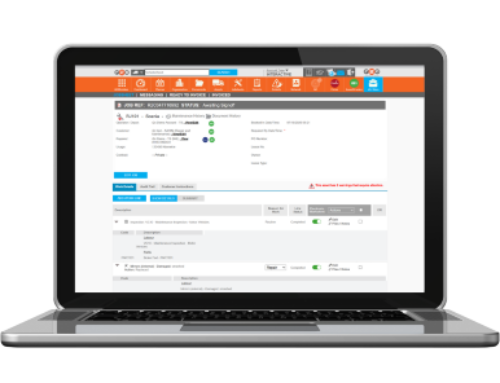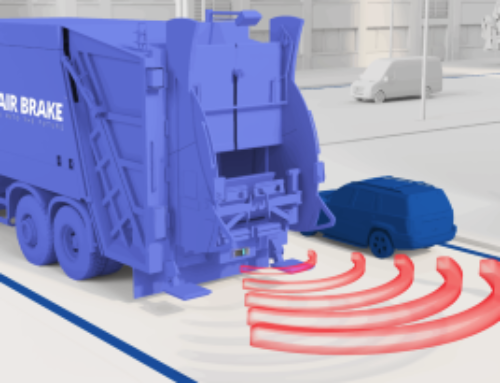DKV Mobility: how fuel cards can yield route to cost savings
 DKV Mobility has offered its perspective on how fleets can achieve significant cost reductions through the use of fuel cards.
DKV Mobility has offered its perspective on how fleets can achieve significant cost reductions through the use of fuel cards.
For HGV, PSV and LCV operators, managing fuel costs is a critical aspect of running a business, the company says, and with fuel accounting for a large proportion of operating costs, in a competitive market where every penny counts, finding ways to reduce these costs is essential to maintaining profitability.
Neil White, UK sales team manager at DKV Mobility, explains how choosing the right fuel card can help unlock these savings.
“Even small percentage reductions in fuel spend can translate into significant financial benefits for your business,” said Neil.
“Fuel cards offer much more than just a method of payment. The right fuel card can deliver significant savings through discounts, access to strategic refuelling locations, streamlined administration and enhanced security.
“Making the right choice can help you control fuel expenditure and optimise fleet costs.”
Neil highlighted a number of key considerations for fleets looking to maximise cost savings with a fuel card.
“When selecting a fuel card, fleet managers should focus on features that directly contribute to cost savings. This includes network coverage. The wider the network of the fuel card, the greater the opportunity to refuel at low cost locations.
“A wide network ensures that drivers can access fuel at the best prices, avoiding premium pricing at motorway or remote stations. In addition, fuel cards offer discounts, especially for larger fleets. It’s important to compare pricing options and understand the terms and conditions associated with these discounts.
“Some providers offer discounts based on fuel consumption, allowing operators to lock in savings for bulk purchases. In addition, consider any applicable fees, deposits and payment terms, as these factors will affect your cash flow.”
Neil also stressed the importance of considering security measures to prevent fraud.
“Fraudulent fuel transactions can be a hidden drain on budgets,” said Neil.
“Secure fuel cards with PIN protection ensure that only authorised drivers can make purchases, protecting your business from unauthorised expenditure.”
Digital tools and reporting are another aspect to consider.
“Fuel cards that offer digital tools such as route planning and real-time reporting provide valuable insights,” he said.
“DKV Mobility’s eReporting system, for example, offers 24/7 access to reports by vehicle, fuel card or cost item, providing transparency into diesel taxes, net fuel costs and more. This level of control helps to track expenditure and avoid inefficiencies.
“Some fuel card providers, such as DKV Mobility, offer services such as VAT reimbursement and toll management, which can further reduce operating costs,” he continued.
“Choosing a card with these extras simplifies processes and unlocks additional savings.”
There are further factors to consider, Neil explained: “Refuelling behaviour plays an important role. Filling the tank unnecessarily adds weight, which increases fuel consumption.
“ For example, if a 600-litre tank is filled every day but only half is used, the unnecessary fuel costs could be as much as £2,500 per vehicle per year. For large fleets, this represents a significant saving by refuelling only when necessary.”
There are also external factors, such as roadworks, that can contribute to hidden fuel costs.
Neil said: “Although roadworks are temporary, they can cause delays and detours, making it difficult to plan fuel-efficient routes. Anticipating the additional costs of such disruptions helps to manage risk.”
Finally, the location and timing of fuel purchases are also critical.
“Refuelling at motorway service stations is often more expensive than off-road options,” said Neil.
“In some countries, such as Germany, fuel prices fluctuate throughout the day, with the highest prices between midnight and 9am. Operators who can refuel later in the day can benefit from lower prices.”
“The cost of fuel is more than just the price per litre,” concluded Neil, highlighting the importance of looking at cost savings beyond the pump.
“Hidden costs such as inefficient fuel use, fraud and refuelling habits all affect the bottom line.
“By choosing the right fuel card, operators can optimise refuelling strategies, take advantage of lower prices and secure savings through discounts and additional services. This means that choosing the right fuel card is a decision with long-term financial implications. DKV Mobility offers a range of fuel card solutions to help HGV, PSV and LCV operators control costs, optimise operations and maximise savings.”












